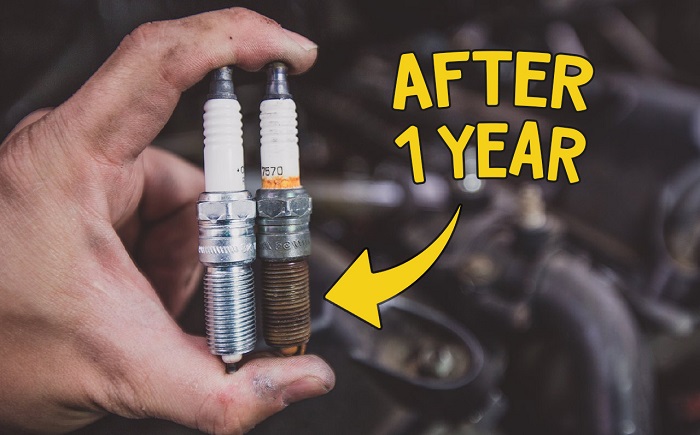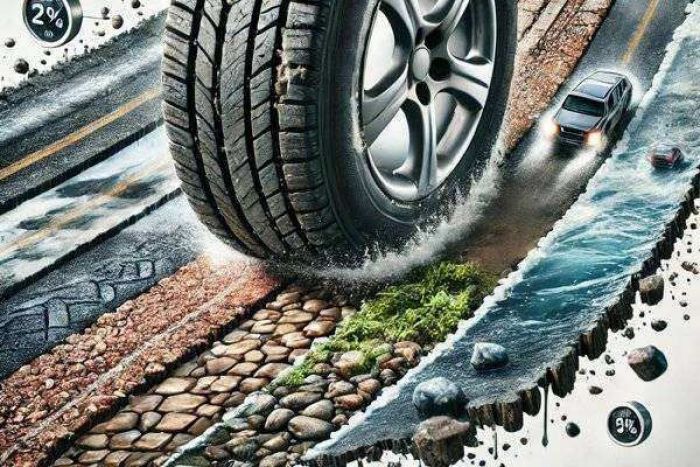
For your car to run, the fuel and air mixture inside the engine needs to be ignited, and that’s the reason why spark plugs exist. The general rule of thumb is to replace your spark plugs whenever your manufacturer recommends you to. That being said, if your spark plugs are malfunctioning in any way, these are the signs to look out for:
- Regular maintenance schedules
- Engine check light is on
- Your car is unable to start
- Your fuel efficiency is getting worse
- Various engine performance issues
- Your car suffers from slow acceleration
- Your engine is loud
- Engine surging or hesitating
- Visual signs your spark plugs are in need of replacement
- Backfiring
Regular Maintenance Schedules
Almost all parts that comprise a motor vehicle are inherently expendable and need replacement eventually, spark plugs are no different. The best course of action would be to follow regular service intervals set out by your manufacturer which often includes scheduled spark plug replacements.
Spark plugs need to be changed as per the manufacturer, otherwise, they will cause engine misfires and many other issues which can lead to unnecessary costs.
Engine Check Light Is On
Modern-day cars are comprised out of thousands of different parts, and arguably the most important one is the engine. Because the engine is so essential, numerous sensors constantly monitor and collect data about the engine's performance. If something goes wrong, these sensors will notify the ECU which will prompt an engine check light on the dashboard.
There are endless different reasons why a check engine light might go on, so to properly pinpoint the issue, you need to scan the car's ECU for specific codes which are associated with misfiring or spark plug issues.
Your Car Is Unable To Start
As stated previously, the purpose of a spark plug is to ignite the fuel and air mixture inside the engine for the engine to produce power. If your car is unable to start, it can often mean that your spark plugs are unable to ignite the mixture and thus not start up the engine. However, if your car has no electrical power, batter or alternator issues are likely to be the cause.
If everything is okay with the car’s electrical system, you should also perform an ECU scan through the OBD port in order to properly diagnose the issue.
Your Fuel Efficiency Is Getting Worse
Whenever your spark plugs are close to dying, they can increase the car’s fuel consumption by up to 30%. This happens because the fuel that goes into the engine is not being burned efficiently, and all of this can cause more issues such as a catalytic converter clog. To proactively solve this issue, always replace the spark plugs in due time as per the manufacturer’s recommendations, no matter what anyone else tells you.
Some might say that automakers are predominantly making these replacement assessments way too conservatively, but if you don’t follow them, you can forget about the warranty coverage, and sometimes even destroy the engine. These estimates are in place for optimal replacement schedules aimed at increasing the lifespan of the engine.
Various Engine Performance Issues
In all the previous articles, we mostly talked about engine issues that are most often associated with spark plugs. However, there are many more symptoms and definite reasons why you should change the spark plugs immediately, and one of them is rough idle. If your car runs rough while stationary, it often leads to old/damaged or worn-out spark plugs.
Besides the rough idle, if you sense your engine lacking in performance, chances are that something might be wrong with the combustion process. If your fuel system functions properly, and so do all of the air sensors, it is likely due to worn-out spark plugs.
Your Car Suffers From Slow Acceleration
As mentioned, spark plugs are intended to ignite the fuel and air mixture inside the combustion chamber in order to provide the car with its pulling power. This means that the engine will not be able to work at its optimum capacity if a spark plug starts to cause issues, and one area where this can be clearly visible is slow acceleration.
However, there is a myriad of different reasons that can cause your car to suffer from slow acceleration including mechanical issues such as clogged filters, low compression, or problems with the exhaust manifold. Furthermore, these issues can also be associated with faulty fuel pumps or injectors and all sorts of in-car sensors. As such, be sure to take your car in for a diagnosis in order not to cause any additional components strain.
Your Engine Is Loud
An engine is designed to work optimally with all of its spark plugs functioning as intended which means that if one goes bad, you are likely going to notice it just by listening to the engine. If one spark plug starts causing issues and it stops igniting the mixture inside the engine, other cylinder heads need to compensate which in turn causes loud engine noise.
These issues are usually referred to as engine rattling which can also be caused by all sorts of issues. If these noises are backed by fluctuating engine RPM, it is most commonly due to a faulty spark plug because the engine burns uneven fuel across all the cylinders.
Engine Surging Or Hesitating
As mentioned in the previous paragraph, if one of your spark plugs is unable to fulfill its duty it causes the engine to run unevenly which is also accompanied by uneven engine performance. Because all the other cylinder heads need to compensate for the lack of performance caused by a single faulty spark plug, it also makes the engine unbalanced when it comes to power delivery.
This is usually backed by both a louder engine, fluctuating RPM, and hesitant acceleration. However, this also causes the engine to sometimes surge in power if the faulty plug manages to create a spark strong enough to light up the combustion mixture.
Visual Signs Your Spark Plugs Are In Need Of Replacement
Visual signs are often the best way to tell if something is operating as it should. This also extends towards the state of your spark plugs so if you come across black or white oily sot deposits on the electrode, they usually lead towards a contaminated ignition system.
This usually means that your spark plugs came in contact with either oil, coolant, or unburnt fuel which means that the system needs to be cleaned and all the affected spark plugs need to be replaced. You can also do a side-by-side comparison between a healthy brand-new spark plug and an older one in order to look for any warping on the housing or burned signs on the electrode.
Backfiring
Engine backfiring is caused when unburnt fuel reaches the exhaust system and gets ignited before it leaves the back pipe which usually results in a loud bang that can hardly be missed. This can often be caused by a spark plug that is unable to ignite the fuel and air mixture which means that unburnt fuel leaves the combustion chamber heading towards the exhaust.
Backfiring can be both loud and quiet-ish, more like a coughing sound. However, these are most prevalent while decelerating and shifting down the gears when the RPM range surges. However, these issues can often point towards fuel issues or timing issues so be sure to inspect your car the moment you notice them.
FAQ Section
How Much Does A Spark Plug Replacement Cost, And Do I Need To Change Them All At Once?
A single spark plug costs anywhere between $5-$15, but if you want to replace them all, you might find them cheaper. You should change all of your spark plugs to achieve a balanced, even engine performance throughout the cylinders.
Can I Replace The Spark Plugs Myself?
It depends on the car in question. Some cars might require you to remove certain components of the engine in order to get to the spark plugs. However, changing the spark plugs in most cars is rather straightforward. To find out, be sure to go through a couple of YouTube videos before you try to replace the plugs yourself.
How Many Spark Plugs Are Inside An Engine?
One spark plug per cylinder is the most frequent amount, but some engines such as the 3rd gen Hemi engines offer 2 spark plugs per cylinder. This means that you will four spark plugs for a 4-cylinder engine, 8 spark plugs for an eight-cylinder engine, and six spark plugs for a six-cylinder engine.
Should I Drive A Misfiring Car?
It's always best to skip driving cars with misfiring engines as this can often lead to more serious issues down the line. Issues such as these can be ignored because they can often be caused by issues that could potentially lead towards complete engine failure.
Why Do Spark Plugs Break Prematurely?
Spark plugs usually break because your engine is experiencing ignition problems or sticking choke. An overly rich fuel mixture can also damage the spark plug. Timing issues can also cause damage to the spark plug, and so can low octane fuels.
About the authors
The CarAraC research team is composed of seasoned auto mechanics and automotive industry professionals, including individuals with advanced degrees and certifications in their field. Our team members boast prestigious credentials, reflecting their extensive knowledge and skills. These qualifications include: IMI: Institute of the Motor Industry, ASE-Certified Master Automobile Technicians; Coventry University, Graduate of MA in Automotive Journalism; Politecnico di Torino, Italy, MS Automotive Engineering; Ss. Cyril and Methodius University in Skopje, Mechanical University in Skopje; TOC Automotive College; DHA Suffa University, Department of Mechanical Engineering






Add comment